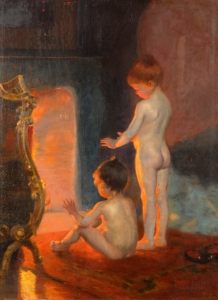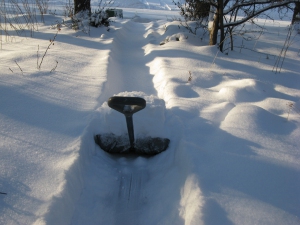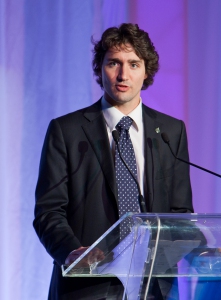You’ve probably seen toxoplasmic headlines about the “sexualization” of youth. But what this really reflects, I hope to convince you, is a panic regarding society’s inability to maintain a perfect Puritanization.1 Every time I see people complain about “sexualization”, I want to scream, and I’ve been wanting to speak about this since I was a kid myself.2

Unsafe at any speed. (LeatherUp.com)
A formative experience of my childhood – when I was seven, I think – was seeing a poster of bikini-clad women on motorcycles. It was behind a door in the bedroom of the son of a professional acquaintance of our family.3
This was a dangerous and irresponsible image – they should have been wearing proper equipment if they were going to be riding. If they were to get into an accident, there wouldn’t be much left of them.
At around the same time, I also saw prints of a few Paul Peel paintings. They made me feel like I could be beautiful and they made me want to be naked and free with other kids. At some point I learned about “nudist camps” and so I started taking my clothes off when I was by myself. I also saw something in a grocery store tabloid about a woman being allergic to clothes and I obsessed about the story and actually kind of envied her.

“After the Bath” (Paul Peel, via I am a Child: Children in Art History)
Taken together, it was like I had lived all my life in the desert and had never known water and here was an oasis and boy does that water taste good, but I also don’t know the terms ‘oasis’, ‘water’, or even ‘wet’. I suppose this knowledge was dangerous in a peculiar way – I had access to drinking water, at least in my imagination, but I couldn’t talk about it with anyone, and I dreaded being caught.4
“Victorianization” may be more accurate, but nobody will know what the hell I mean and they’ll think of Dickens instead of Kellogg. Apologies to actual Puritans.
On how our current panic reflects the Victorian panic:
Maggie McNeill, The Honest Courtesan – “Everything Old is New Again” ↩Excepting a flirtation with Dr. Laura-style social conservatism in my adolescent years, where in the very presence of my body screaming “SEX NOW” I dutifully went to war against myself (and others) just like many other people exposed to a no-sex-outside-marriage Christianity. ↩
No, not a dentist. ↩
To someone thinking, “Look, you just said it yourself, you’re living proof of the harm exposure to exposed skin causes children!” I would say, “Well, it’s kind of like the harm of getting caught with alcohol during Prohibition. Your claim of the harm of the thing would have little or nothing to do with the innate nature of the thing.” Too many things are like that these days. ↩



